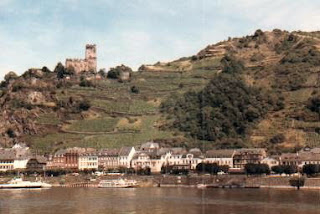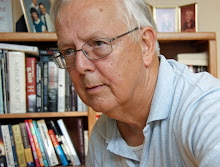I Remember…
By Bob Sanchez
 It was 1985, and my 13-year stint in customer service had mercifully ended. I was determined to change my career to technical writing, but every potential employer wanted applicants to show both academic credentials and a writing portfolio. So I enrolled in a technical communications program at the University of Massachusetts, and took on all the freelance writing assignments I could find—for free when necessary, as long as I garnered at least a byline.
It was 1985, and my 13-year stint in customer service had mercifully ended. I was determined to change my career to technical writing, but every potential employer wanted applicants to show both academic credentials and a writing portfolio. So I enrolled in a technical communications program at the University of Massachusetts, and took on all the freelance writing assignments I could find—for free when necessary, as long as I garnered at least a byline.In those days, personal computers were new, and The Boston Computer Society (BCS) had taken on the task of educating the area’s public about their use. They published a slick magazine that printed some of my work, though they didn’t pay; those clips formed the rudiments of my portfolio, but the work was not technical.
Then at a BCS meeting, I traded business cards with a professional translator named Lee who said he needed someone to provide him with publicity. He was thrilled with the newspaper profile I wrote for him (gratis, of course), which he reprinted and distributed endlessly.

One day, Lee called me. He had a German client named Gunther who had written a computer manual in English and wanted help in editing it. When I looked at the draft, I thought—to paraphrase Truman Capote—it didn’t need an edit so much as a trip to Lourdes. “It needs a complete rewrite,” I said. Their answer surprised me: “Come to Germany and work on it here.” They offered a good wage plus expenses, and said my utter inability to speak German was no problem.

Gunther had arranged for me to stay with a young family who lived across from his business in a tiny farm town, so for a month, my commute was a 30-second walk to a vintage 1923 schoolhouse that Gunther and his two sons used for their business. After a breakfast of coffee, bread, and jam, I would cross the road, greet the sons (who’d gone to college in California and spoke excellent English), and go to the second floor. There I was typically alone with my computer station and my work, the window open to the smell of manure and the lowing of cows from the barnyard next door.
There were no restaurants nearby, and I had no car during the week, so Gunther’s wife served substantial evening meals. The nearest city was Fulda, a lovely city about the size of Las Cruces. I’d read about the “Fulda gap” in Tom Clancy's novel Red Storm Rising—it was the invasion route for Soviet armies. On Saturday mornings, one of Gunther’s sons drove me to a car rental shop where I rented a vehicle and headed out on my own for the weekend.
My automotive jaunts took me through beautiful, rustic villages to the barbed-wire border where signs warned of unexploded land mines. Few of the locals outside of my work spoke any English, yet I generally conveyed what I needed by smiling and pointing—and occasionally looking desperate. Trucks with names on their sides like Mengele and Krupp reminded me that this beautiful country and friendly people had a dark past.
One weekend I drove to the Rhine River and boarded a tourist boat. We passed postcard-worthy towns, bucolic vineyards, and three dozen castles before turning around at the base of a massive cliff named Lorelei’s Rock.
Another weekend took me to Berlin, which meant driving through communist East Germany. At one point I pulled to the side of the highway, thinking I could help a stranded motorist. After many gestures, he conveyed that he wanted me to tow his car somewhere. I pictured this destroying my rental car, so I gave him a ride to the nearest telephone instead. I was only willing to go so far for world peace.
West Berlin was inexpensive, because I slept in the car. My weekly pay was thick in my wallet, making me constantly self-conscious. Most of this money had to come home with me to Massachusetts to pay bills. I stood at the edge of a crowd, watching a Middle-Eastern con artist run a shell game. He was good. I always thought I knew which shell the pea was under, and I was always wrong. A lot of people lost money, but I held tightly onto my wallet, fearing I’d be scammed or robbed.
The Berlin Wall near Checkpoint Charlie was a mass of grafitti, colorful and chaotic; I stood on a platform and looked into East Berlin, which seemed gray and sterile. Later that day, I inadvertently cut off a motorcyclist in traffic. Oops. He was a police officer, and he pulled me over. Since I couldn’t appear in court, I had to pay my 30 Deutschmark fine directly to him. Then on my way back, of course I had to drive through East Germany again, where another police officer flagged me down and ticketed me for speeding. Unlike in the decadent West, the East Germans had strict speed limits on their autobahn—and they had speed traps. For my part, I had receipts for traffic fines from both countries. The receipts became souvenirs.










2 comments:
Nice memoir. What an experience. The toilet paper thing though. She was in the men's room?
A positively charming story! Now I want to know more. What was your next assignment? You pulled it off, became a technical writer. How?
And for my money, that's as good a compliment as your going to get. You caught my attention, made me want more.
We should swap some Germany stories sometime. About, for example, the time I went into the church in a little town near Stuttgart and asked the lady there to show me the birth records. There was my great-grandfather's birth certificate, with a note on it that said his parents were unehelich. Since then I've always sported a bar sinister on my coat of arms.
Post a Comment